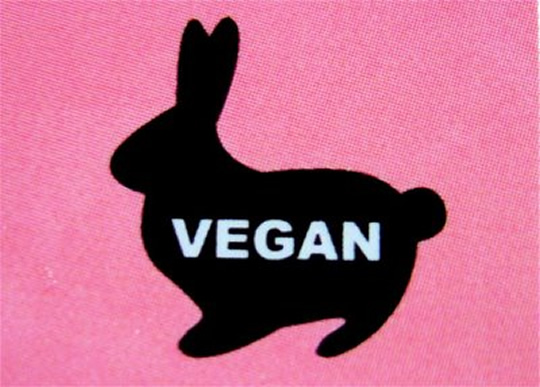Being vegan is a political decision. Whether it’s an action against animal cruelty or a way to cut your carbon footprint, there are tons of benefits to going vegan. But it can seem like a daunting task. What do vegans even eat anyways? Do they get enough protein? This guide will quell questions and dispel myths for activists eager to change their lifestyle. It includes:
What it means to be vegan
Why bother
Myth vs fact
Going the distance
What’s a vegan?
A vegan is someone who doesn’t eat or use any animal products. This definition can be as strict or as loose as you want. At a glance this is striking meat, eggs, milk, cheese and other dairy products from the menu. This also includes anything made with those ingredients, like mayonnaise or some kinds of pasta. Some vegans also don’t eat anything made in a facility that also cooks with non-vegan ingredients. Unlike vegetarianism, which focuses on not eating meat, veganism goes beyond the basic animal products that are in everyday food.
The word vegan was created by mashing up beginning and end of the word vegetarian. Creators contest that veganism takes the idea of being vegetarian to its logical conclusion: boycotting all animal products entirely.
Vegans often stay away from honey, gelatine and other less obvious animal by-products. Food that goes through certain processes can also use animal derivatives. White sugar is often refined using bone char (a kind of charcoal made from animal bones) and some wines are also filtered through fish oil or egg based products. Vegans don’t limit themselves to food either – they don’t use any animal products for fashion either. Down jackets, wool sweaters and silk dresses are all out the picture.
Why bother
Just like many vegetarians, some vegans choose to change their diet to fight for animal rights. By not eating animals, vegan activists are living their politics, the same way someone dedicated to anti-racist organizing wouldn’t use oppressive language in their personal lives. Animals are frequently abused when they are farmed or slaughtered for fashion, killed cruelly and inhumanely. Vegan diets are a way to take a stance against cruelty or the idea of killing animals altogether.
Veganism is also better for the environment. It’s estimated that the difference between a meat diet and a vegan diet is two tonnes of carbon dioxide per person each year. Cows are some of the largest producers of methane in the world, a gas that linked to climate change. Farmed animals require more water and land than plants and retain less nutrients than plants. With more people going hungry worldwide and more land being taken up by livestock, a vegan diet is also more sustainable.
A vegan diet is also a great way to get more involved with where food comes from, how its produced and nutritional requirements. Because vegans are more careful about animal by-products, they often eat fresher, less processed food. Veganism to many folks is also about eating local and organic as well.
Myths vs fact
Vegans can't eat anything.
NO WAY – vegans can anything non-vegans can with a few creative modifications. From scrambled “eggs” (tofu), to mac and “cheese” (nutritional yeast), to dense crumbly cinnamon buns, vegan recipes are diverse, easy and delicious. Just because someone is vegan doesn’t mean they just sit around eating seeds. Vegans can be some of the best casual cooks because they often have to make food instead of buying ready-to-eat frozen or packaged meals.
Vegans can't eat at most restaurants.
AS IF – Most restaurants offer differ options for various dietary requirements. Salad is only the beginning – many vegetarian meals can be made vegan by taking out a single ingredient. Don’t be afraid to ask for speciality meals or adjustments.
Vegans don't get enough protein. They can't be active/athletes/healthy.
NOT TRUE – Beans, tofu and textured vegetable protein are great alternatives to meat that vegans can eat. Whereas non-vegans assume that they have enough protein in their diets, vegans are often hypersensitive and eat as much, if not more protein. It’s easy to be healthy and vegan!
Going the distance
The entire world isn’t about to go vegan anytime soon and it can be tough to be the only vegan in a group of friends. It’s especially hard because non-vegans can continue to encourage myths and question your reasoning. Here are a few tips for happy vegans:
Remember why you went vegan: it’s a political decision and not everyone has the same politics. The important thing to keep in mind is why it’s personally important to you.
Don’t lord your veganism over non-vegans: this kind of action isn’t right for everyone. Just like some activists can’t participate in long marches or hunger strikes, some folks can’t be vegan for health reasons or other extenuating factors.
Nobody’s perfect: vegans try as much as possible to avoid animal products, but sometimes it’s not always possible. So your bike isn’t vegan. Sometimes you can’t do everything perfectly but the important point is that you take action.
Resources




